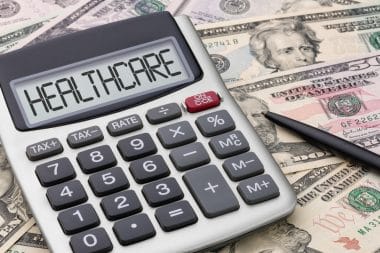No one likes getting older. Although it may qualify you for an inexpensive apartment and let you partake of the early bird special, aging has an adversary effect on the body, and it can be riskier to get certain medical treatments. You may have fewer options in terms of your career and, if you are retired, you might not have as much money to spend as you once did.
One advantage of aging in America is that you can receive Medicare coverage when you are over 65. There are four different parts of Medicare, and the part you qualify for will depend on several circumstances.
Medicare Part A
Part A covers hospitalization. In addition to covering actual hospital stays, it will also cover specific at-home treatments, hospice treatment, and skilled nurse care if it becomes necessary. As with private health insurance, you may be responsible for co-payments as well as a deductible.
Medicare Part B
Medicare Part B functions as basic health insurance. It covers such things as doctor’s appointments, vaccines, outpatient psychiatric treatment, and chemotherapy.
Medicare Part C
Part C, which is also known as the Medicare Advantage plan, is provided by private insurance companies that have been approved by Medicare. According to the website Medicareinsuranceaz.com, Medicare Part C also includes Vision Care and prescription drug coverage. It is considered a more flexible plan, but it is also more costly.
Medicare Part D
Medicare Part D covers prescription drugs. You will purchase this part of the program separately.
Qualifications for Medicare
If you are over 65, and either you or your spouse has paid Medicare taxes over the course of the last ten years, you should be able to receive Medicare coverage with no premium.
If you have permanent kidney failure that requires dialysis or Lou Gehrig’s disease, you should qualify for Medicare no matter what age you are.
If you have collected Social Security Disability payments for 24 months, you may qualify for Medicare coverage regardless of age. However, if you go back to work for a company for over nine months, you may end up losing that coverage.
If you never paid Medicare taxes, you may be able to buy Part A of the coverage.
You can get premium-free coverage if you receive or are eligible for the Railroad Retirement Funds or Social Security.
You will automatically be enrolled for Part A of Medicare if you received Social Security benefits for at least four months prior to your 65th birthday. If you are not already receiving Social Security on your 65th birthday, you will have to fill out a separate application for Medicare.
Qualifications for Part B
You must have Part A of Medicare to sign up for Part B. you must also have been a citizen or have had a green card in the United States for five years. In some cases, you will be automatically enrolled in Part B when you are enrolled in Part A. If you are still working and you are covered by private insurance, you will have the option of keeping that insurance and enrolling in Part B at a later time.
Qualifications for Part C
In order to be eligible for Part C Medicare coverage, you must be over 65 or have a disability, just as with Part A & B. You should know that you may have to have a little extra money for Part C, as the premiums tend to be higher.
Medicare qualifications can be confusing, but talking to a Medicare Advantage insurance agent can help. Medical coverage is very important when you get older. It is never too early to start doing your research.








Reply